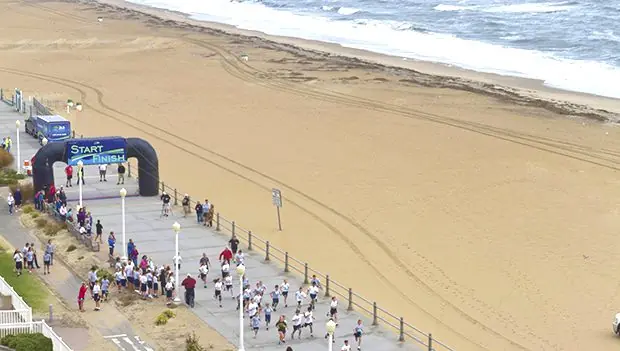
The right training fuel helps you feel your best, doesn't cause an upset stomach and promotes steady energy. While that sounds imple enough, it can actually take months or even years for some athletes to dial in to their favorite fuel for before, duringand after any training, event or race.
Once you get a hang of it, you think you're set. Until you have a destination event.
Traveling can throw a challenging wrench into even your best-laid plans. You usually have at least one day of car or airplane travel and restaurant or convenience store food before your event. And then, there's the night-before meal, and the morning of.
While it is a challenge, it's not impossible to stick to your plan and go into your race feeling well-fueled and ready. Having an eatingplan can reduce anxiety and allow for a calm, relaxing evening and morning before your race.
More: Q&A with Tim Reed: How to Pack Your Pockets and Fuel up for Long Runs
Here are some tips to help you dial in traveling training fuel.
Travel Day:
1. Don't let your travel day turn into an all-you-can-eat grazing buffet in your car. For some reason, road trips often turn into snack-a-thons. Instead, eat as you normally do. Stick to your regular meals and snacks, with breaks of not eating in between; hormone and blood sugar cycles do well with eating and not eating, rather than constant grazing.
2. Snacks: Generally, it's hard to find good-quality snacks on the road or in airports, so try packing your own. In the car, a small cooler can allow you to snack on yogurt, cheese and fruit. Nuts, whole-food bars and carrot or celery sticks are also easily packable.
3. Hydrate well, as traveling often tends to dehydrate athletes. It may be the often hectic schedule that makes you so busy you simply do not drink and fuel properly. It may also be changing climates, the dry airplane air or the airline fluid restrictions.
It's likely a combination of all of these. Whatever the culprit, make it a point to carry fluids with you as much as possible and hydrate well. It also helps to add electrolytes to your fluids the day before, so take along easy-to-carry electrolyte tablets and throw those in 1 to 2 servings of fluids.
More: 5 Ways to Deal with Bathroom Issues on the Run
Dinner Before the Event:
4. If possible, scope out dinner options ahead of time and find something suitable in advance. If you don't, and you're tired from travel, late getting into town or don't know your way around, you may have to settle for fast food or something that won't agree with you on race day.
5. Keep dinner simple. You need easy-to-digest foods that you know don't upset your stomach. Lean proteins such as chicken, whole-food carbohydrates such as rice, yams, sourdough breads or whole-grain pastas, and low-fiber vegetables such as green leaves, carrots and tomatoes are all good choices. If you're carbo -loading, you can easily add a banana or two from a convenience store or grocer.



